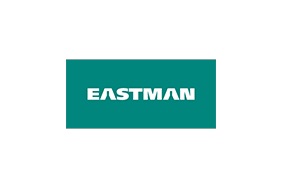Subhashini Vashisth’s Impact as an Engineer and Champion for Women in STEM
(This is the first in a three-part series on Women of Color in STEM award winners at Eastman.)
Published 09-10-24
Submitted by Eastman

As one of the few women in her chemical engineering undergraduate class at the Indian Institute of Technology, Delhi, Subhashini Vashisth quickly learned to navigate male-dominated spaces and make sure her voice was heard.
Now the group leader of polymer synthesis and applications in Eastman, corporate innovation, Vashisth collaborates with scientists, engineers and technicians on polymer-based projects. During her nine years at Eastman, she contributed to process improvement, optimization and initiation of new polymer growth projects. This includes exploring new materials and sustainable options for the specialty fluid business.
She holds a doctorate in chemical engineering from the Indian Institute of Technology Delhi. Vashisth's leadership and research contributions and passionate advocacy for diversity and inclusion earned her the 2023 Technology Rising Star Award at the Women of Color (WOC) STEM Awards. Most recently, she was awarded YWCA Northeast Tennessee and Southwest Virgina Tribute to Women Award for STEM for her community service and for encouraging women and girls in STEM.
Here are her answers to a few questions about her career:
What motivated you to pursue a career in STEM and why chemical engineering?
My parents always emphasized the value of education because it’s a tool that prepares one for life and can't be taken away. My father always said, “Education is the license to a better life.”
I loved all subjects in school from math to biology to physical education. As an overachiever, when faced with the choice of pursuing either the medical or the engineering field, I wanted to do both.
In India, students participate in a national-level entrance exam, taken by approximately 600,000 students every year, to secure admission in either medical or engineering programs. However, the exam alone does not guarantee a spot, as getting to choose the desired major is based on exam ranking. Among the top engineering disciplines, including electronics, mechanical and chemical engineering, I choose chemical engineering.
What does this award mean to you?
Recognition fosters engagement. As women of color in engineering and technology, we have shattered barriers, paving the way for future generations. When your work is acknowledged and appreciated, it can be a powerful psychological motivator. It acts as a catalyst, serves as a source of inspiration and empowers others to carve their own paths with confidence.
This award has been one of the greatest things that happened to me. It not only acknowledges my contributions but also recognizes and celebrates the unique perspectives and accomplishments of women of color and the impact we’ve made.
Which organizations are you involved in, and how do you actively contribute to promoting inclusivity and diversity?
As the former global chair of Catalyst ERG, an Eastman resource group supporting women, I participated in quality initiatives within Eastman and the broader community. This role provided insights into the challenges faced by women in different regions, enabling me to advocate for their needs.
Outside of work, I oversee the "Lead Undivided" council with Kingsport Chamber of Commerce members, focusing on education and awareness and addressing unconscious biases. Serving on the chamber board allows me to influence community leaders and empower women through programs and connections. I also serve as a scientific advisor for the North American Society of Chemical Reaction Engineering as well as an active member of the American Institute of Chemical Engineering Society (AIChE) with a focus on the Rising Star leadership program for women engineers.
Community service strengthens and connects us to our community, developing a positive impact on our local area. It fosters empathy and compassion, benefiting both our community and workplaces. That’s why I encourage everyone to get involved in any role, big or small, within the community.
Subhashini Vashisth shared this advice for researchers, scientists and STEM professionals transitioning into leadership roles or seeking employment.
- Focus on enabling and empowering your team to achieve their goals.
- Understand your responsibilities to avoid micromanaging and instead support your team's problem-solving abilities.
- Celebrate the accomplishments of your team members.
- Advance your personal and professional growth by investing in training, seeking mentors and building a strong network to better support and serve your team.

Eastman
Eastman
Founded in 1920, Eastman is a global specialty materials company that produces a broad range of products found in items people use every day. With the purpose of enhancing the quality of life in a material way, Eastman works with customers to deliver innovative products and solutions while maintaining a commitment to safety and sustainability. The company’s innovation-driven growth model takes advantage of world-class technology platforms, deep customer engagement, and differentiated application development to grow its leading positions in attractive end markets such as transportation, building and construction, and consumables. As a globally inclusive and diverse company, Eastman employs approximately 14,000 people around the world and serves customers in more than 100 countries. The company had 2023 revenue of approximately $9.2 billion and is headquartered in Kingsport, Tennessee, USA.
About Eastman in the circular economy: In 2019, Eastman became the first company to begin commercial-scale chemical recycling for a broad set of waste plastics that would otherwise be landfilled or, worse, wind up in the environment. Eastman's molecular recycling technologies can process waste plastics traditional mechanical recycling methods cannot—including polyesters, polypropylene, polyethylene, and polystyrene—derived from a variety of sources, including single-use plastics, textiles, and carpet. These technologies provide a true circular solution of endless recycling for materials, allowing them to be reused repeatedly.
To learn more about how we’re working to make a more circular economy visit eastman.eco.
More from Eastman

